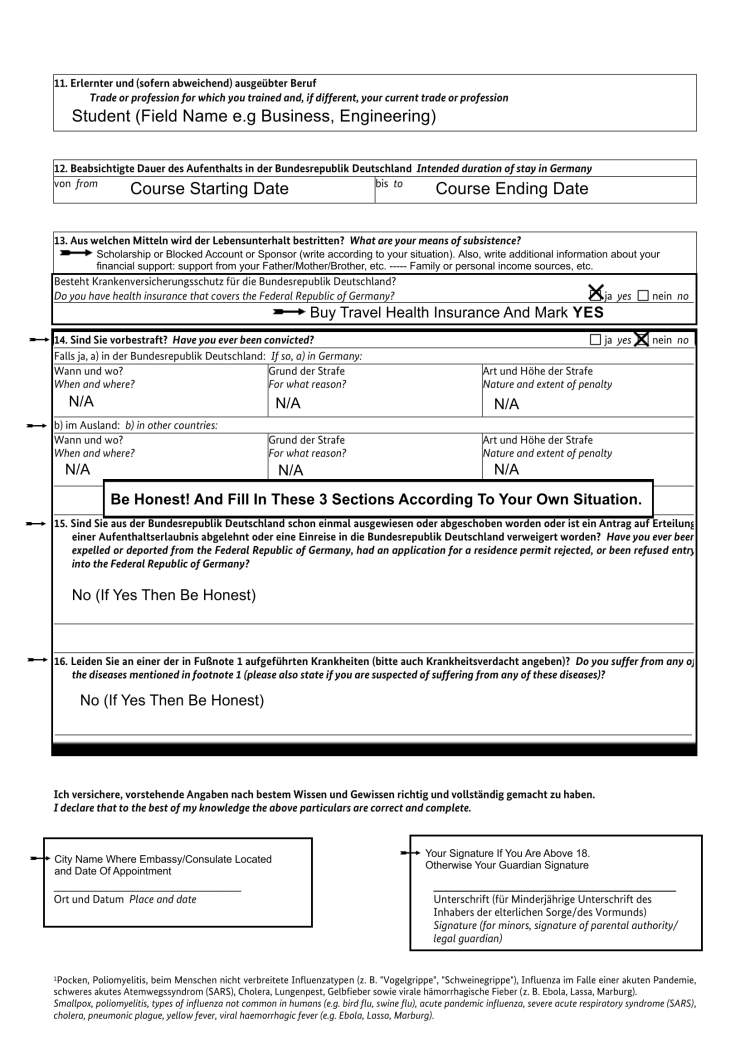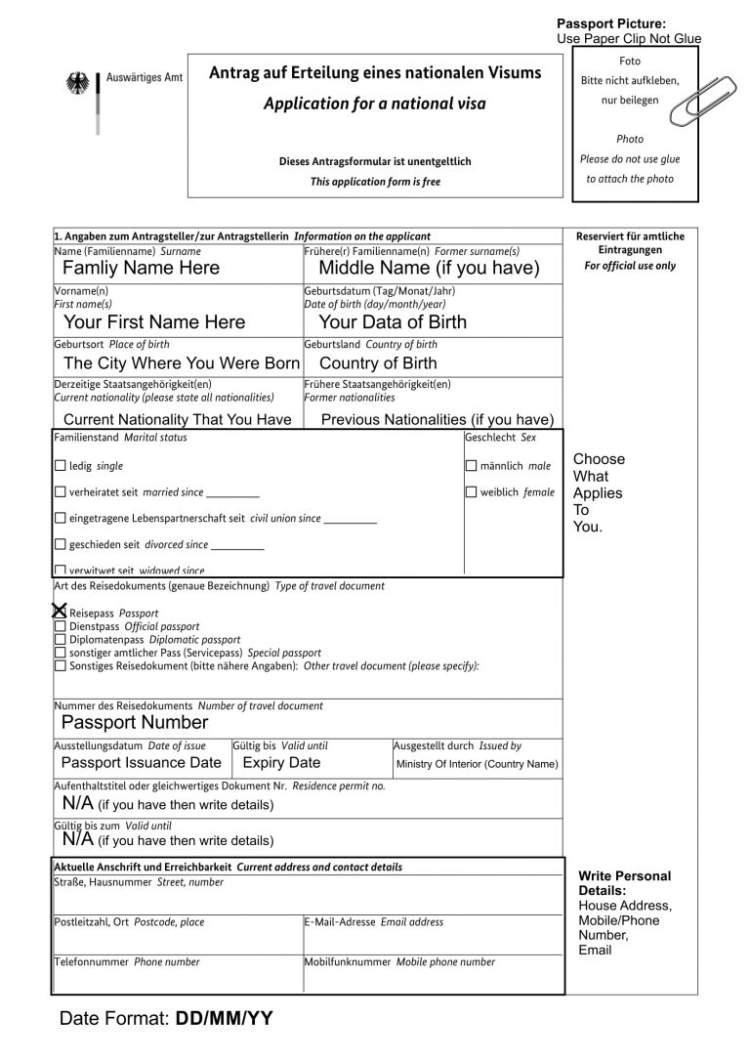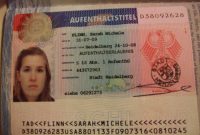Applying for a German Student visa can be confusing and complex if you don’t know where to begin. Germany’s visa application process is highly regulated and it can be difficult to navigate without sufficient support.
This comprehensive guide is designed to help you navigate the German student visa application process. With this guide, you will learn all of the important steps for submitting a successful application and ensure the best chance of acceptance.
What You Need to Know Before Applying for a German Student Visa
Germany is a popular destination for international students, offering a variety of universities and programs. If you want to study in Germany, you must first obtain a student visa from the German Embassy or Consulate in your home country. In this guide, we’ll provide you with all the information you need to know about how to apply for a student visa to Germany.
Here are the documents you’ll need to apply for a German student visa:
- Valid passport (must be valid for the duration of your stay in Germany)
- Proof of acceptance from a German university (this can be an acceptance letter from the university, an enrollment certificate, or other documents)
- Proof of financial support (for example, a bank statement showing that you have enough money to cover your living expenses while studying in Germany)
- Medical insurance (most German universities require international students to have private medical insurance for their studies)
- Proof of German language proficiency (if you are taking courses at a German university, you must demonstrate that you are proficient in the language to be accepted)
Once you have collected all the necessary documents, you will need to make an appointment at the German Embassy or Consulate in your home country to submit your application. The visa process can take up to six months, so it is important to apply well in advance of your start date. You may also need to provide additional documents if requested.
After successfully submitting your application, you can expect to receive your student visa within a few weeks. This visa will allow you to stay in Germany for the duration of your studies, as long as you remain enrolled in the university. It is important to note that this visa does not permit you to work while you are studying in Germany.
If you plan to stay in Germany after your studies are completed, you may be able to apply for a residence permit. Additionally, if you wish to work while studying in Germany, you may be eligible for a work permit. For more information on these requirements, be sure to check with the German Embassy or Consulate.
Required Documents for a German Student Visa

Applying for a German student visa entails gathering the required documents and preparing for the interview process. Having the correct set of documents will help make the visa process go a lot smoother in the long run. Here are the documents needed for a German student visa:
Valid Passport
The most important document you need to begin the visa process is a valid passport. A passport is essential for traveling and it must be valid long enough for your visa request. Please make sure that the passport must have some free pages available for stamping.
Two Recent Color Photographs
You must have two recent color photographs that meet the required criteria in order for the German Embassy to accept it. According to the German Embassy, the photos should be 35mm x 45mm with a white background. Additionally, the photo should be in focus, show the full frontal view of the face, and should not be any older than six months.
Prior Educational Certificates
It is important to provide your prior educational certificates. You should have your diplomas, certificates of completion, or transcripts for all the educational institutions you completed throughout your school year, and must be translated properly.
Proof of Financial Resources
You will need to provide a proof of financial resources for the duration of your stay in Germany. This includes a scholarship letter, bank statement, and/or proof of sufficient funds. Generally, there should be around €8,648 available savings to qualify.
Visa Processing Fees
You are required to pay a one-time application fee before submitting the visa application. The visa fee is currently around €75 which is subject to change anytime. Make sure to pay the exact amount to avoid any delays.
Visa Appointment
Once all the documents are ready, you may proceed to make an appointment with the local German Embassy. You must bring all of the documents and be on-time during the interview. If you require additional paperwork to fulfill the requirement, they will inform you during the interview.
Other Documents
Other documents that may be required:
- Proof of Health Insurance
- Letter of Acceptance from the University
- Evidence of Tuition Fee Payment
- Proof of Accommodation in Germany
- Registration Certificate from the Local Aliens’ Authority
Application Process for a German Student Visa
Applying for a student visa for Germany requires a series of formalities that must be fulfilled. Below is a comprehensive guide to the German student visa application process:
Step 1: Check Your Eligibility
To be eligible for a German student visa, you must fulfill certain criteria. You must be enrolled in a full-time course at an accredited German institution, be able to support yourself financially for the duration of the program, and have a valid passport.
Step 2: Collect Required Documents
You will need to prepare several required documents for your German student visa application. These include a valid travel document (such as a passport), proof of your health insurance, a letter of admission from the German institution, proof of enrollment in German language courses, proof of sufficient financial means of support, and any applicable fees.
Step 3: Submit Your Application
Once you have collected all of the required documents, you can submit your application to a German embassy, consulate, or visa application center in your home country. Alternatively, you can submit your application online using the appropriate forms and information.]
Step 4: Attend an Interview
You may be required to attend an interview with a consular officer as part of the German student visa application process. During this interview, you will be asked to provide further information about your background and plans for study in Germany, as well as answer questions about your educational and financial qualifications.
Step 5: Receive Your German Student Visa
Once the consular officer has approved your visa application, your German student visa will be issued and sent to you. Once you receive your visa, you will be ready to start planning your trip to Germany.
Conclusion
In conclusion, applying for a student visa for Germany is a complex and demanding process. Keeping up with all the rules, regulations, and requirements can be tricky, especially if you are not familiar with the German legal system. That said, if you follow the procedures correctly, you will increase the chances of success for your application.
At the end of the day, applying for a student visa for Germany comes down to accurately completing the paperwork and providing all the necessary documents. Making sure your visa application is complete and that all information provided is accurate is your key to success in this endeavor.




